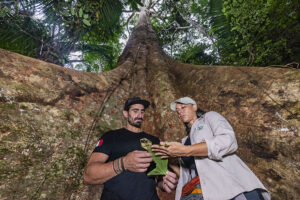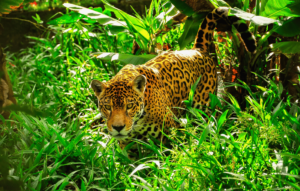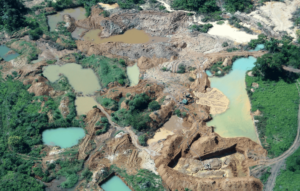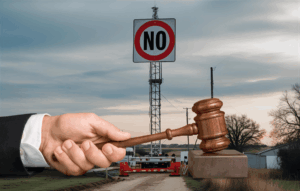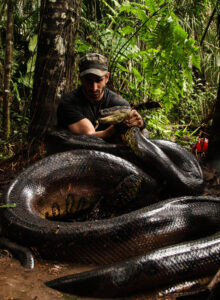
The Amazon rainforest is often called the “lungs of the Earth,” a fitting term for an ecosystem that produces around 20% of the planet’s oxygen. However, it’s much more than that. The Amazon regulates global weather patterns, harbors unparalleled biodiversity, and supports the livelihoods of countless indigenous communities who have called it home for generations. But the Amazon is under attack. Deforestation, illegal mining, and poaching are pushing this critical ecosystem closer to a tipping point.
At the heart of efforts to save the Amazon is Junglekeepers, a conservation organization founded by Paul Rosolie. Junglekeepers is dedicated to protecting the forest and empowering local communities to defend their land and preserve the environment. Here’s why Junglekeepers’ work is so crucial and how they’re making a difference on a global scale.
Who Are Junglekeepers?
Junglekeepers is more than just a conservation organization; it’s a movement to safeguard one of the planet’s most vital ecosystems. Founded by Paul Rosolie, an author, adventurer, and environmentalist, Junglekeepers aims to protect the Amazon by creating ranger programs, securing protected areas, and working alongside indigenous communities. Unlike many conservation groups, Junglekeepers focuses on empowering local people to take control of conservation efforts. This approach not only enhances local buy-in but ensures that conservation efforts align with the unique needs and wisdom of those who live in the Amazon.
Rosolie and the Junglekeepers team understand that protecting the rainforest requires an approach that’s as diverse as the ecosystem itself. By building relationships with indigenous people and employing locals as rangers, Junglekeepers establish a powerful line of defense against illegal activities while creating job opportunities that encourage sustainable alternatives to logging and mining.
The Global Importance of the Amazon
The Amazon rainforest is inarguably one of Earth’s most critical ecosystems. Its importance stretches far beyond the borders of South America and affects us all. Here’s why protecting the Amazon matters globally:
- Carbon Storage: The Amazon is one of the world’s largest carbon sinks, absorbing billions of tons of CO2 annually. When trees are cut down, not only does this carbon-capturing capacity decrease, but the stored carbon is also released back into the atmosphere, accelerating climate change.
- Biodiversity: The Amazon houses an estimated 10% of the world’s known species. From vibrant bird species to plants with medicinal properties, the rainforest’s biodiversity contributes to scientific advancements, ecosystem resilience, and even the development of pharmaceuticals.

- Climate Regulation: The Amazon influences weather patterns across the planet. Its trees release water vapor through a process called transpiration, which contributes to rainfall both in the region and across the globe. A deforested Amazon would mean significantly drier climates, impacting agriculture and water availability in far-reaching areas.
- Indigenous Knowledge: Indigenous communities have lived in harmony with the Amazon for centuries. Their deep understanding of the forest and its cycles offers valuable insights into sustainable living and conservation practices. Losing the Amazon means losing this critical knowledge base.
The Immediate Threats Facing the Amazon
The Amazon’s survival is in jeopardy. Deforestation, illegal mining, poaching, and pollution from industrial activities threaten to unravel this ecosystem. These threats are urgent and require immediate action:
- Deforestation: Agricultural expansion for crops and livestock is responsible for a significant portion of Amazonian deforestation. Large sections of rainforest are cleared daily, releasing stored carbon and endangering countless species.

- Illegal Mining and Logging: Gold mining and illegal logging destroy habitats and pollute rivers with mercury and other toxic chemicals. This not only harms wildlife but also poses severe health risks to indigenous populations.
- Poaching and Wildlife Trafficking: The Amazon is a target for poachers and illegal wildlife traders. Rare species are taken from their natural habitats and sold on the black market, pushing already endangered species closer to extinction.
- Wildfires: While many fires are set intentionally to clear land, they often spiral out of control. These fires devastate vast areas of the rainforest, releasing massive amounts of carbon and harming air quality both locally and globally.
Each of these threats compounds the others, creating a perilous situation for the Amazon. Without intervention, the Amazon could reach a tipping point, shifting from a carbon sink to a carbon source. Junglekeepers recognizes this urgency and is taking action.
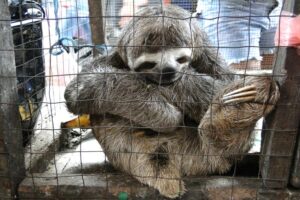
How Junglekeepers Is Making a Difference
Junglekeepers takes a multi-pronged approach to conservation that emphasizes tangible, immediate impacts:
- Land Protection: Junglekeepers secures land in high-risk areas, ensuring that these regions are protected from deforestation, mining, and other destructive activities. Through careful monitoring and enforcement, they safeguard areas crucial to biodiversity and climate stability.
- Ranger Programs: Junglekeepers trains local people to become rangers, creating job opportunities that not only protect the forest but also provide sustainable alternatives to industries that harm the Amazon. These rangers patrol the land, monitor biodiversity, and help prevent illegal activities.
- Community Engagement: Junglekeepers works closely with local communities, especially indigenous groups, to develop sustainable income sources and educational opportunities. By aligning conservation with community interests, they create a model that benefits both people and the planet.
- Education and Advocacy: Junglekeepers raises awareness about the importance of the Amazon and the consequences of its destruction. They engage in outreach that encourages the public to become more involved in conservation efforts, whether by supporting policy changes or through direct action.
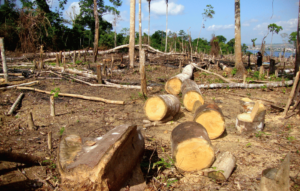
Through these efforts, Junglekeepers has successfully protected thousands of acres of rainforest, but there’s still much work to be done. Their approach serves as a model for how conservation can and should operate: from the ground up, with respect for local cultures and a commitment to sustainable solutions.
How You Can Support Junglekeepers
Saving the Amazon requires global effort, and individuals around the world can play a role. Here are some ways you can support Junglekeepers:
- Donate: Financial contributions directly fund land purchases, ranger salaries, and community programs. Even a small donation goes a long way in supporting their vital work.
- Raise Awareness: Share information about Junglekeepers and the Amazon with friends, family, and on social media. Awareness can lead to action, and the more people understand the Amazon’s importance, the more support Junglekeepers will receive.
- Support Eco-Friendly Products: Choose brands and products that prioritize sustainable practices and avoid using materials that contribute to deforestation. Consumer choices have the power to influence industries and reduce demand for destructive practices.
- Stay Informed: Follow Junglekeepers and other conservation organizations to stay updated on the Amazon’s status. Knowledge is a powerful tool, and staying informed enables us to advocate for policies that protect vital ecosystems like the Amazon.
Final Thoughts
The Amazon rainforest is a global treasure, essential to life on Earth as we know it. But its future is uncertain, and the consequences of inaction would be devastating. Junglekeepers’ work goes beyond protecting trees; they are safeguarding a way of life, preserving biodiversity, and securing a future where the Amazon continues to thrive.
Junglekeepers is not just about conservation; it’s about creating lasting, positive change for the Amazon and for our planet. By supporting their mission, we are investing in the future of our environment and the well-being of generations to come. Now is the time to act, to stand behind the guardians of the Amazon, and to ensure this irreplaceable ecosystem remains a cornerstone of life on Earth.
